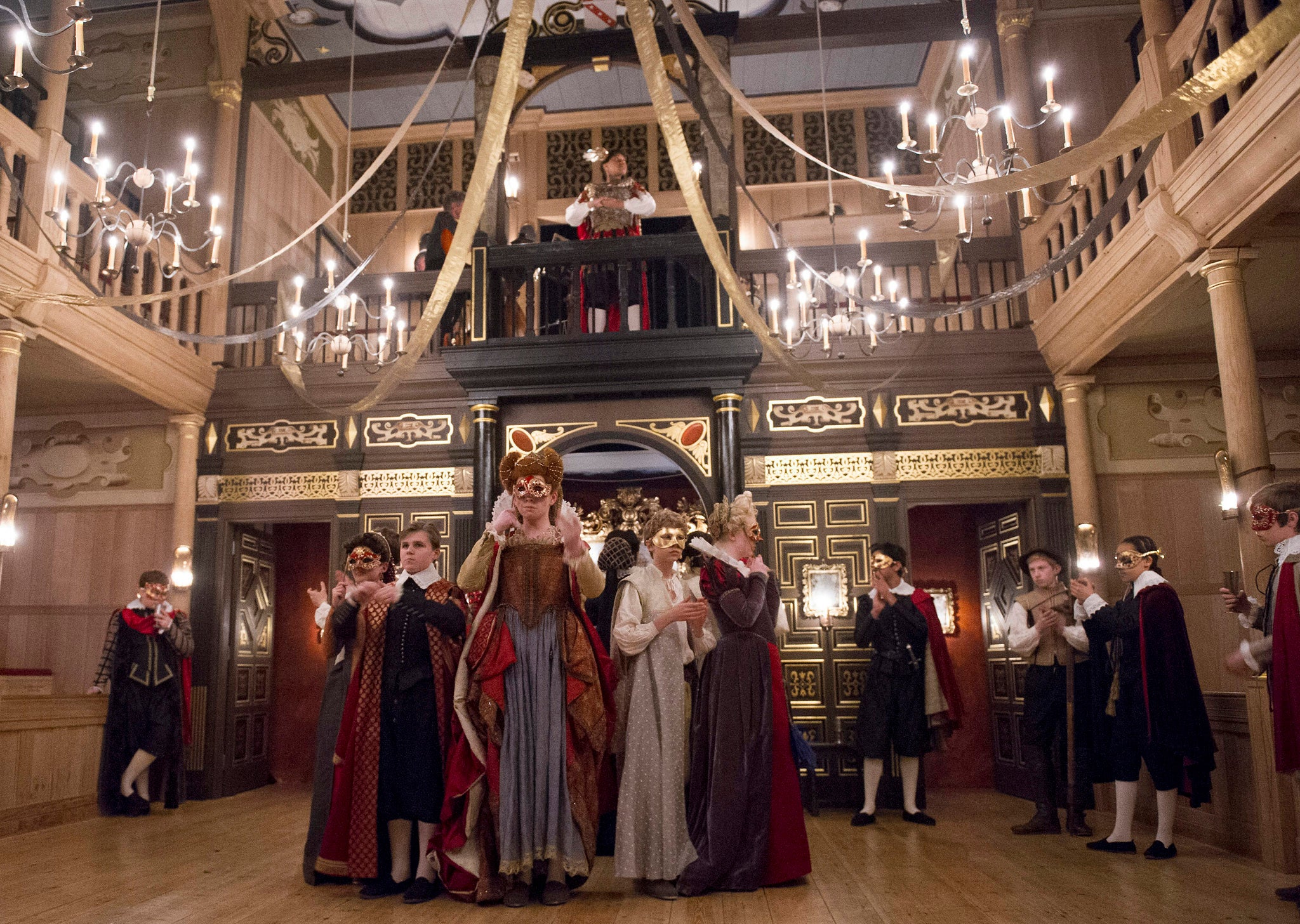The Malcontent, Sam Wanamaker Playhouse, theatre review
It may have been written for children, but this is a thoroughly adult play

One of the aim’s of the Globe’s indoor Jacobean Playhouse was to experiment with theatrical traditions of the era. And with this debut show by The Globe Young Players, that intention is in part fulfilled: for John Marston’s The Malcontent was written for The Children of the Chapel at Blackfriars Playhouse in 1603, a company of young boys (although the Globe opts for gender and colour-blind casting here).
It may have been written for children, but The Malcontent seems a thoroughly adult play.
The deposed Duke Altofront disguises himself as the scheming Malevole, to gain the confidence of the Genoan Court, which is riddled with vice: adultery, lasciviousness, murder, machiavellian plotting... Marston’s tone manages to be righteous - the duke is seeking to return justice and order to the court - and also world-wearily cynical and satiric.
So, what is the effect of putting such material into the mouths of babes?
Aged 12 to 16, this company aren’t quite babes - but one still gets a strange jolt now and then at the striking gaps between content and deliverer in Caitlin McLeod’s production.
The girls’ costumes, in particular, have an almost uncanny effect: perfect doll-like miniatures of elaborate Jacobean dress. Joseph Marshall, who plays Malevole, is slight and gangly with such a sweet voice, yet in his ‘antic disposition’ he spits forth scathing views on how humanity is “the slime of this dung pit” called earth. And when the rotten Mendoza shrugs “women!”, we laugh not just because this all-purpose complaint sounds so modern, but because it’s being made by a boy who cannot possibly be so worldly.
Their youth brings a new layer of ironic distance - surely an effect such casting would have had in the 17th century too - and makes for a valid experiment. Yet there are also serious practical challenges here which this admirable young cast don’t always overcome.
The language, of course, isn’t second nature - and while many master the verse impressively, and exhibit neat, nice comic timing, there are also bungled speeches. It’s not the easiest plot, with most characters deceiving and dissembling, bluffing and double-bluffing, as well as experiencing reversals of fortune, regrets and recantations. That’s a lot for any actor to tackle, and not all succeed.
A few honorable mentions: Alexander Clarke as Bilioso, an obsequious court marshall, swells with a sonorous, fruity voice, but also brings real precision to his gouty, jowly comic excesses. Guy Amos as Mendoza keeps the verse crisp, his intentions clear, and all while amusingly making eyes at us and waggling his brows. And Sam Hird, cross-dressed to the hilt as the trollopey old trout Maquerelle, camps it up like he’s the next David Walliams; he showboats for sure, but you’d have to be hard-hearted not to relish this sassy performance.
To 19 April; shakespearesglobe.com
Join our commenting forum
Join thought-provoking conversations, follow other Independent readers and see their replies
Comments
Bookmark popover
Removed from bookmarks